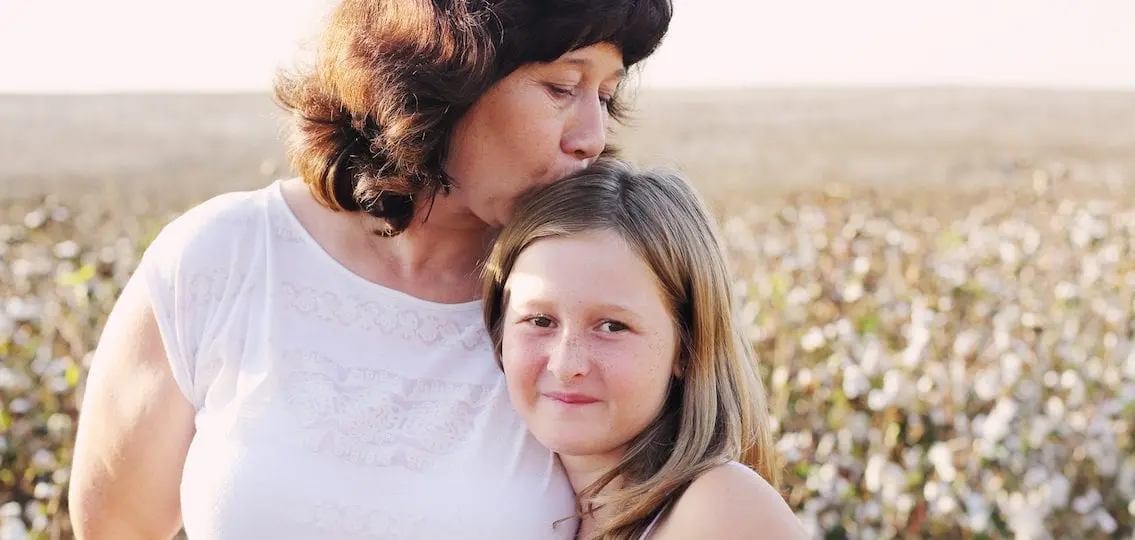Picture this. Eight girls gathered in a circle dancing around girl number nine, dressed in a white, frilly sort of number, singing about their power, their body, their connection to the earth.
Now picture me, working mom, forty-something, eyes wide open as a newcomer to the Period Party, a ritualistic celebration complete with pink and red cupcakes and organic tampon goodie bags.
Party for First Period
In many ways, it was a very enjoyable experience, far better than the memory I have of when I had my first period. There were meaningful moments and even a few tears, but I will not be throwing a period party for my daughter when the “big day” arrives.
I started menstruating when I was eleven, well before any of the other girls in my fifth-grade classroom. I understood what was happening to me, but that didn’t change the awkward feeling of the thick maxi pad when I went outside to play Four Square at recess, nor did it help ease the brain-busting headache that lasted for days.
Worse was my mother’s attempt at making it all seem okay. She handed me books, which was our way of talking about uncomfortable things. She hugged me and said, “Congratulations on becoming a woman,” a phrase which still elicits a tightening of my jaw.
That said, I got into the swing of things, and the next month the whole process seemed much more tolerable.
But I felt ashamed. I cannot deny that my response to bleeding was that of shame—that I had something to hide. Like many teenage girls, I felt shame for other reasons too. I towered over all of the boys. I had acne and was overweight. My body was curvy and not represented kindly in the media at the time. Finding blood in my underwear didn’t feel celebratory to me.
Enter the Period Party.
A Full Moon Party
Instead of feeling ashamed of what our bodies do, we celebrate. At the party I attended, the girls wrote promises to themselves about how they would honor and cherish their bodies and then burned them in a fire. They sang songs and read poems about the earth and our cherished relationship to the moon.
The young woman who led the ceremony fit the bill perfectly. Her name was Imani. She wore an earthy printed jumpsuit, and her hair was locked with shells for hair clasps. She spoke about the importance of energy and asked for the astrological signs of all the party goers. If it sounds a little Gaia for you, well, you would be correct, and it was for me, too.
But there was something to it. While we’ve made great strides as women, I think the messages we send our young girls are filled with contradictions.
When I ask most of the young ladies I know about their first periods, the focus quickly becomes about what they were wearing when it happened. Were they dressed in white shorts, who saw or who knew, and how long did they wait until they told their mothers.
No one ever mentions telling dads. The emphasis is never on the incredible gift our bodies can give to the world, to someone we love, and to ourselves once we are ready. It’s more about the headaches, the expense and uncomfortableness of tampons and pads, and how it disrupts our routine.
Preparing for my Daughter’s First Period
To a person of eleven, the power of being able to create life and give birth sounds alien. For so many years, having a visit from “Aunt Flo” is about pain and discomfort, and not about the moon and the earth and our place in the collective forward movement of humanity.
Historically, we haven’t dealt with periods in a sex-positive way either. From the association with sorcery and witches to the once held belief that our periods destroyed crops, we have never known what to do with this phenomenon.
So, while I appreciate the party, it’s not something I will do for my daughter. I think she would be embarrassed and would not enjoy the attention. I also believe that in promising a “party,” we are not acknowledging the physical reality of the pain and responsibility that comes with menses. Somehow, cupcakes and fires trivialize the hard work that comes with being female.
Yes, we should feel proud of what our bodies can do, and we should absolutely celebrate all that it means to be a woman, but we must also acknowledge that women’s bodies take a beating in this life.
I think the right position for me as a mother is to ask my daughter how she’d like to handle it. Does she want to embrace it, ignore it, celebrate it—or some middle ground I cannot see.
Whatever she chooses, I won’t pretend that it’s all wonderful. But I won’t ignore the wonder of our bodies either.




